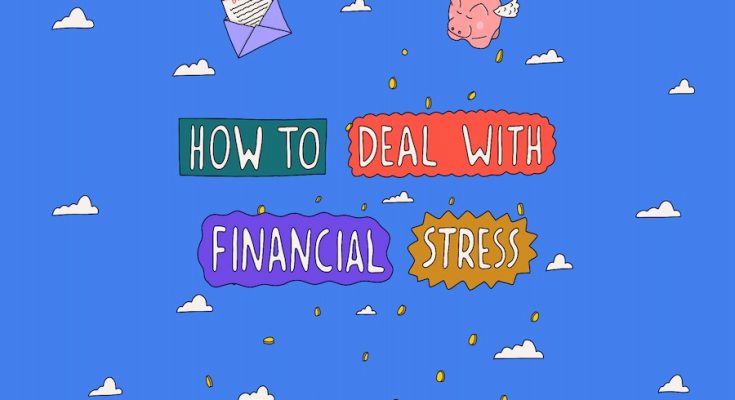In the complex tapestry of modern life, few stressors exert as pervasive an influence as financial worries. The weight of debt, the anxiety of insufficient savings, or the uncertainty of future expenses can cast a long shadow over one’s well-being, impacting not just personal peace but also professional performance and overall health. However, much like a well-managed business navigates economic cycles with strategic planning and risk mitigation, individuals can proactively employ specific strategies to **reduce financial stress**, transforming apprehension into empowerment and cultivating a greater sense of security. It’s about shifting from a reactive stance to a proactive one, gaining control over your financial narrative rather than being dictated by it.
One of the most fundamental steps in mitigating financial stress is to **establish absolute clarity about your current financial situation**. Many people avoid looking at their bank balances, credit card statements, or outstanding bills because the truth feels overwhelming. However, ignorance is not bliss; it’s a breeding ground for anxiety. Begin by compiling a comprehensive overview of your income, expenses, assets, and liabilities. This involves tracking where every dollar goes for at least a month, categorizing spending, and understanding your fixed versus variable costs. Tools ranging from simple spreadsheets to sophisticated budgeting apps can facilitate this process. This initial financial audit, much like a company’s diligent quarterly report, provides the essential data needed to make informed decisions. Without this clear picture, any attempts to alleviate stress are merely shots in the dark.
Once you have a clear financial snapshot, the next crucial step is to **create a realistic and actionable budget**. A budget isn’t about deprivation; it’s a strategic spending plan that aligns your income with your priorities and helps you avoid overspending. Allocate specific amounts to different categories like housing, food, transportation, and entertainment. The goal is to ensure your outflows do not exceed your inflows. If they do, the budget serves as a powerful diagnostic tool, highlighting areas where cuts or adjustments are necessary. For instance, if dining out consumes a large portion of your income, identifying this allows you to consciously reduce that expense. Sticking to a budget builds confidence and reduces the stress associated with unexpected shortfalls. It transforms abstract worry into concrete action, akin to a business meticulously managing its cash flow to ensure liquidity and stability.
Building an **emergency fund** is perhaps one of the most effective shock absorbers against financial stress. Life is inherently unpredictable; unexpected car repairs, medical emergencies, or job loss can quickly derail even the most carefully laid plans. Having a readily accessible fund, typically three to six months’ worth of essential living expenses, provides a vital safety net. This fund should be kept in a separate, easily accessible savings account, distinct from your everyday checking account, ensuring it’s not inadvertently spent. The peace of mind derived from knowing you have a financial cushion to fall back on during crises is immeasurable. It’s the equivalent of a company maintaining healthy reserves to weather economic downturns, ensuring operational continuity even in adverse conditions.
Addressing **high-interest debt** is another paramount strategy for reducing financial stress. Credit card debt, in particular, can be a heavy burden due to its compounding interest. Develop a clear plan to pay down these debts, prioritizing those with the highest interest rates (the “debt snowball” or “debt avalanche” methods are popular approaches). Consider consolidating high-interest debts into a lower-interest personal loan if your credit score allows, or even negotiating with creditors for more manageable payment plans. Each successful debt repayment provides a tangible sense of progress and lifts a considerable weight off your shoulders. Tackling debt proactively is much like a business restructuring its liabilities to improve its financial health and reduce ongoing interest expenses.
Furthermore, **investing in financial literacy and continuous learning** can significantly empower you against financial stress. The more you understand about investing, taxes, credit, and economic trends, the better equipped you are to make informed decisions and avoid costly mistakes. This doesn’t require becoming a financial expert; rather, it involves dedicating time to learning basic principles through reputable books, online courses, or workshops. Knowledge dispels fear and replaces it with confidence. Regularly educating yourself about personal finance is akin to business leaders staying abreast of market trends and regulatory changes; it’s essential for sound decision-making and navigating complexities.
Finally, and perhaps most subtly, reducing financial stress involves cultivating **mindful spending habits and managing expectations**. In a consumer-driven society, there’s constant pressure to acquire more, often leading to impulse purchases and lifestyle inflation. Practicing mindful spending means making conscious decisions about where your money goes, aligning your expenditures with your values, and distinguishing between needs and wants. It also involves avoiding the “keeping up with the Joneses” mentality, recognizing that true financial security and peace come from living within your means and building a stable future, not from external displays of wealth. If stress persists, seeking guidance from a certified financial planner or a therapist specializing in financial anxiety can provide personalized strategies and support. Ultimately, reducing financial stress is an ongoing journey of awareness, discipline, and strategic action, allowing you to regain control and foster a healthier, more secure relationship with your money.



